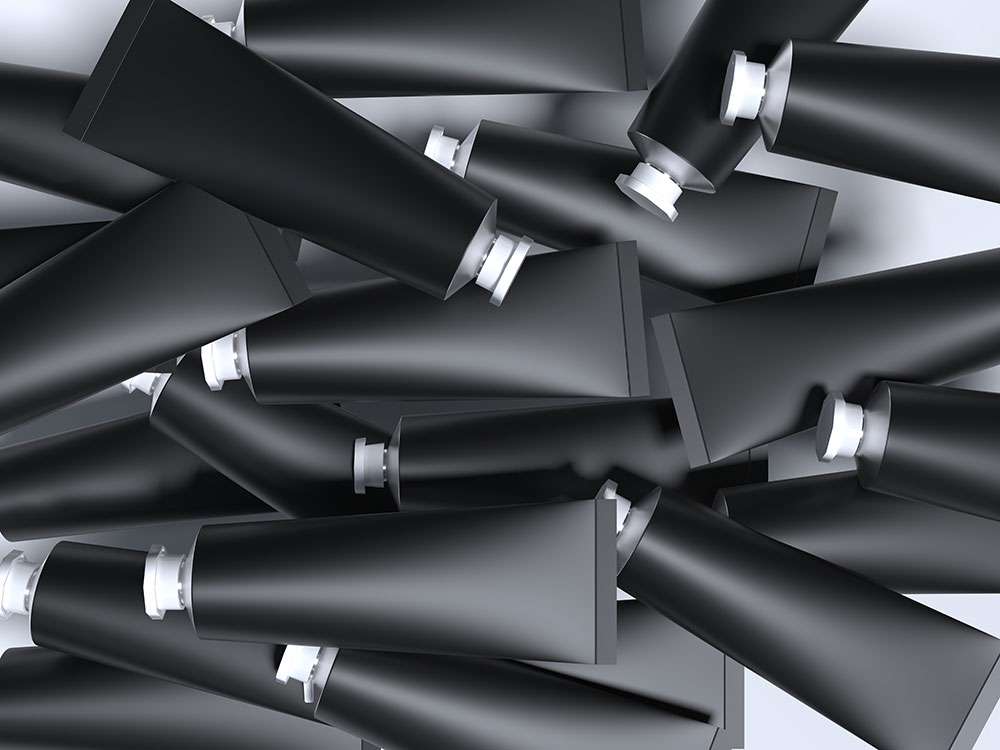As consumers become more environmentally conscious, the packaging industry must adapt to fulfill these demands. One innovative solution that is increasingly being acknowledged is the recyclability of aluminum tube containers. This article aims to shine a spotlight on these eco-friendly alternatives, unravelling their potential as sustainable packaging solutions in great detail. We will begin by exploring why aluminum tube containers have emerged as a sustainable option in the realm of packaging, laying a solid context for their significance in creating a greener future. Dive deep into the recycling process of these containers, understanding the journey these materials take – from your hands all the way to getting a new lease of life. In our discussion of the environmental effects of recycling, we'll underscore the impact of aluminum recycling on the reduction of carbon emissions, conservation of natural resources, and decrease in waste generation. We will also consider the pivotal role played by consumers in this narrative – their awareness, attitudes, and participation dramatically influence the recycling rates and success. The discussion will further lead us to tackle the regulations and initiatives put forth globally in this area. As part of a burgeoning effort to promote sustainable practices globally, numerous guidelines have been introduced by authoritative bodies to further encourage the use and recycling of materials like aluminum. This comprehensive article is intended to inform, raise awareness, and foster responsible consumption and disposal practices concerning aluminum tube containers. Whether you are a business owner, consumer, or a curious reader, this discourse will shed light on an important conversation that resonates with our current quest for sustainability.

Aluminum Tube Containers: An Eco-friendly Choice
Aluminum tube containers have been gaining immense recognition as an eco-friendly choice owing to their stellar recyclability potential. Unlike some plastics and composite materials, aluminum is an infinitely recyclable resource, meaning it can be recycled over and over without losing its attributes. If you take a closer look at these containers, you would find that they're lightweight, durable, protective, and entirely recyclable. They provide an excellent barrier against light, air, humidity, and contamination, which in turn helps to maintain the quality of the packaged product, enhancing its shelf life without the need for refrigeration. Therefore, less energy is expended in storing the products, fortifying aluminum’s position as a supreme choice in regards to sustainability. But what really sets aluminum apart is the relatively low energy required for its recycling process. Recycled aluminum necessitates only 5% of the energy used for primary aluminum production, delivering significant energy savings. Not to mention, this process reduces the emission of greenhouse gases by up to 95%. Furthermore, since aluminum lasts a very long time and can be repurposed again and again, the need for land mining is drastically minimized, thereby conserving natural landscapes and habitats. Thus, the adoption of aluminum tube containers is not just a sustenance measure, but it is a strategic move that aids in the preservation of the planet for future generations. Numbers and facts, when tied with responsible consumption and recycling, support the conviction that these containers are, indeed, an eco-friendly choice.

Understanding the Recycling Process
The recycling process of aluminum tube containers is a fascinating and complex journey that underscores the inherent sustainability of these materials. Initiating at the consumer level, these containers – once emptied and rinsed – enter a complex ecosystem of recycling procedures. The collected aluminum tubes are first segregated from other waste at specialized facilities. Upon categorization, they are compacted and shredded into small, manageable pieces, which are then processed to remove decals or coating materials. This ensures the purity of the material before it enters the smelting phase. The pieces are melted in large furnaces at high temperatures, transforming them from solid metallic fragments into a molten state. This state makes it easier to remove any leftover impurities using a process known as 'drossing'. Following purification, this molten aluminum is cast into large, manageable blocks, or 'ingots'. These ingots are rolled into sheets and ready to be repurposed into new aluminum packaging products. What is most inspiring about this process is that it is infinitely repeatable without any degradation in the aluminum's quality. This circular system not only locks the value of the aluminum but also realizes significant environmental benefits such as saving raw materials and energy, reducing air and water pollution, and decreasing greenhouse gas emissions. By understanding the intricacies of this recycling process, we can better appreciate how using and recycling aluminum tube containers form a significant part of our collective commitment to more sustainable practices.
The Environmental Impact of Aluminum Recycling
Aluminium recycling holds untold environmental benefits that make it an integral part of the sustainability conversation. When we recycle aluminium, we're embarking on a process that uses only 5% of the energy needed to produce new aluminium from bauxite ore. This dramatic energy saving results in equally significant reductions in carbon dioxide emissions, a leading culprit in the acceleration of global warming. Moreover, unlike some other materials, aluminum possesses the unique attribute of being infinitely recyclable without losing any of its original properties. This makes aluminum an efficient resource in the circular economy, contributing to conserve natural resources by minimizing the need for raw material extraction. Also, since aluminum is lightweight, it reduces energy consumption during transport, further reducing its environmental footprint. Additionally, recycling aluminium tube containers aids in reducing waste generation. As packaging solutions, these recyclable containers, when properly disposed of, do not end up in the landfill causing environmental pollution but are instead reincarnated into new functional aluminium products. As consumers and industries continue to embrace recycling, the positive environmental impact becomes even more pronounced. However, the efficiency of this recycling process is dependent on the active participation of consumers in waste segregation and responsible disposal. Hence, it becomes crucial to raise public awareness about the environmental paybacks of aluminum recycling and encourage their active involvement. Together, we can make the most of the environmental benefits offered by aluminum recycling, contributing to a more sustainable, healthier planet.

Consumer Awareness and Participation
Consumer awareness and participation play an integral role in the success of any recycling initiative, particularly in the case of aluminum tube containers. In today's environmentally conscious society, the onus extends beyond industries and policymakers; consumers must also take responsibility and partake in the process actively. Firstly, there is a need for increased consumer awareness about the environmental benefits of using and recycling aluminum containers. This knowledge not only empowers consumers to make informed decisions but also drives an attitudinal change towards sustainable packaging solutions. When consumers understand how their choices contribute to a larger cause such as resource conservation, waste reduction, and reducing carbon emissions, it instills in them a sense of environmental stewardship. Participation, on the other hand, entails not only purchasing aluminum tube containers but also ensuring proper disposal for recycling. Even the most recyclable material on earth needs to end up in the recycling bin to be effectively recycled. Unfortunately, despite high recycling rates for aluminum, a significant percentage of these containers are still littered or landfilled. Therefore, enhancing consumer participation in recycling is just as crucial. Educational campaigns, incentive-based programs, and improved accessibility to recycling facilities can drive up consumer participation. Public-private partnerships can also be instrumental in setting up effective collection and recycling systems. However, it’s not just about putting the systems in place; consumers must also be taught how to use them correctly. In essence, consumers hold the key in transforming aluminum tube containers into a circular economy success story. By fostering greater awareness and encouraging active participation, we can amplify the environmental benefits that these sustainable packaging solutions provide.

Global Regulations and Initiatives
Global regulations and initiatives play a crucial role in the recycling journey of aluminum tube containers, promoting sustainable packaging practices worldwide. Recognizing the integral role these containers can play in reducing harmful waste, numerous national and international bodies have introduced legislation and initiatives to encourage their use and recycling. The European Union, for instance, has adopted stringent measures to minimize packaging waste, including aluminum tubes, through the Packaging and Packaging Waste Directive, which promotes recycling and reuse. In the United States, the Environmental Protection Agency has undertaken various actions and programs like the Resource Conservation and Recovery Act (RCRA) and Sustainable Materials Management (SMM) to establish recycling guidelines. Additionally, the World Packaging Organization, through its Global Packaging Project, aims to set a common direction for sustainable packaging, highlighting the importance of using materials that are recyclable like aluminum. Such worldwide initiatives reflect a resounding effort to integrate recyclable materials into mainstream packaging practices. However, the actual impact of these regulations largely depends on the implementation efficacy by individual countries and the awareness, support, and participation of both businesses and consumers. Thus, looking at a global panorama, the novel initiatives and comprehensive regulations form a robust foundation, pledging towards boosting the use of recyclable packaging alternatives like aluminum tube containers and promoting a packaging revolution of sorts.





